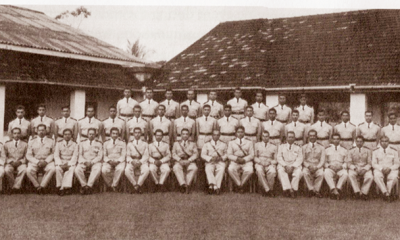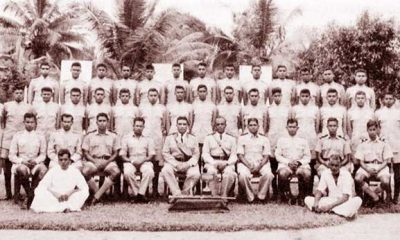Features
Passing out of the Police Training School and beginning Divisional training in Colombo
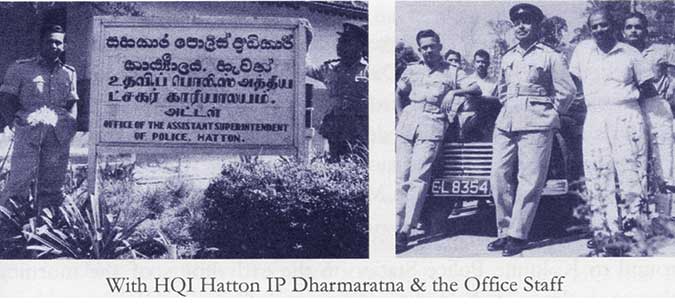
Excerpted from the Memoirs of Rtd. Senior DIG Kingsley Wickramasuriya
We were all were trained in thrift as well. As we reported at the Training School to begin our course, we were asked to open an accounts book and keep track of our income and expenditure It had to be submitted to our supervisor for scrutiny and advice. Any unnecessary expenditure would be frowned upon and the officer concerned given a rap. So, thrift has now become a lifelong virtue (even in family life) and continues to date.
The final examination was the swimming test. All of us passed the test except for one or two. Those who failed it were kept back for a further period of training while the others were qualified to pass out of the Police Training School.. Then came the passing out parade with Mrs. Sirimavo Bandaranaike, the Prime Minister at the time, as the chief guest. We had a grand passing out parade under the leadership of Superintendent of Police Werapitiya, the Director of Training.
On passing out from the Sri Lanka Police College, the three of us Probationary ASPs were transferred to the Colombo Division in February 1964 under the Superintendent of Police (IDM) Van Twest for Divisional Training. He was a good sportsman particularly interested in football and did much with the clubs in Colombo to promote the game during his spare time.
Whilst in Colombo the three of us were billeted at the Senior Police Officers Mess (SPOM) and taken to various points of duty with transport provided by the Transport Division. Each one of us was first attached to a Police Station in the Colombo Division under the Superintendent of Police (Colombo). I was attached to Borella Police Station and the other two to two other different Police Stations.
We were rotated through every branch at the police station and learned the work under the supervision of the OIC of the police station. The training included reading the various Information Books maintained at the police station, making orders, investigating petty complaints, and crime inquiries, making crime files, going on foot patrols at night, and learning the administration of the police station.
We worked for a week in each branch. Working closely with the other ranks in the various branches gave us a good insight into the working of a police station, the methods followed in investigations, shortcuts taken and the reasons for that. It also allowed us to learn firsthand the thinking of the police officer at the grass-root level. What was obvious was that what guided them in their work was traditional practices that were handed down from generation to generation in the police hierarchy without being questioned.
Some of them were good practices whilst the others were questionable. For instance, crime investigation was old-fashioned and had no scientific basis. Much emphasis was placed on extracting evidence by the use of force rather than resorting to collecting scientific evidence. The result was sometimes taking the wrong person to task and causing them physical harm, to which I was a helpless witness at least on one occasion. That day I learned the lesson of the danger of using ‘third degree’ methods in investigations. To cover up, Police had to resort to many unsavory tactics to save themselves from the legal repercussions. It was not worth the effort put into investigations. I was to realize this over and over again later in my professional life.
At the same time, it was fun to see how things worked at the ground level. Night patrols were sent out on foot in pairs in the evenings lasting for several hours. A patrol is expected to visit many vantage points covering several miles signing the patrol books kept at those points. I too had to join one of these patrols a couple of times. The officers on patrol would walk trying to reach a target at a given time at a suitable pace.
To break the monotony of the journey they would drop in at a wayside tea boutique and spend some time there having a cup of tea and a short eat (vadai) and proceed quietly along. Though with two stars on the shoulder as a Probationary ASP I was no different to them. They would invite me too to join them. That was how the night patrols were kept going.
From the very beginning, I would start questioning everything in practice before I accepted what was eing done as correct. The rank and file were generally amused by my curiosity. Once on the way to the police station, I saw a constable on point duty directing traffic from a platform in the middle of a junction. Noticing that the way he was directing traffic was not the usual method, I stopped and proceeded to show him the correct way to direct traffic. Later on, I learned that there were some sour comments in certain quarters over what I had done as if it was not the ‘done thing’.
After this training, we were attached to the Central Garage to undergo training in driving heavy and light vehicles under Superintendent of Police (Gamini) Jayasinghe. He was a very charismatic officer and well-trained horseman. We admired his skill in horsemanship. In the meanwhile, we had our horse-riding lessons as well at the Police Riding School of the Mounted Divisions. Morning hours were spent at the Riding School, thereafter at the office of the SP Colombo.
At the Riding School we were put through our paces in the various riding techniques — the trot, bumping trot, canter, and galloping. For galloping, we were taken to the Galle Face Green. In the final stages of the training, route marches were organized. We rode from the Riding School to Nugegoda. We were accompanied by ASPs S. Vamadevan and Douglas Ranmutugala attached to the Colombo Division. That was also a very pleasant experience during our training.
With that our Divisional training was over and we were ready to be posted outstations. So, in May 1965 1 was posted to Kandy Division while the other two were posted elsewhere. Before being posted outstation, we had to buy our cars, for ASPs were not entitled to government transport like at present. So, we had to organize a car loan from the Department that would be deducted in installments from our salary.
To get a loan we had to find a guarantor to sign the application. Finding guarantors was a difficult exercise as many did not like to be responsible for repaying somebody else’s loan.. It was with the greatest difficulty that I finally found a guarantor, the SP Colombo. With this loan I managed to find a used Peugeot 203 that later proved to be a white elephant with many a repair required along the way.
Features
Pluralism and democracy increasingly targeted in US

 If anti-Semitism is indeed on the rise in the US’ seats of higher learning and elsewhere in the country, the federal and state governments of the US are obliged to stamp out by non-coercive means such divisive tendencies without delay. This is in view of the US’ status as a foremost democracy of the world.
If anti-Semitism is indeed on the rise in the US’ seats of higher learning and elsewhere in the country, the federal and state governments of the US are obliged to stamp out by non-coercive means such divisive tendencies without delay. This is in view of the US’ status as a foremost democracy of the world.
Anti-Semitism and other forms of racism run antithetical to the principles of democracy and governments claiming to be democratic have no choice but to ensure that such blights do not take root in their countries. Accordingly, anti-Semitism and antipathy towards Palestinians and the Islamic faith, for instance, are in the same league of heinous offences that demand instant eradication by governments that are pledged to upholding democracy and its core principles and values.
However, the above responsibility does not devolve only on governments. The obligation is cast on all sections of society that cherish democracy to denounce racism in all its forms and to help in its eradication.
For example, if the Israeli state comes to be perceived as racist, the same applies to those sections in the Islamic and Arab world and outside who voice their support and by their selective silence promote those states and groups in the Middle East that are supportive of anti-Israeli militant violence that is pledged to destroying by whatever means the Jewish state. A solution to the Middle East conundrum needs to be entirely democratic in nature and should be sensitive to the prime needs of the principal parties to the conflict.
These home truths, as it were, need to be borne in mind at the present juncture when some of the US’ most prestigious universities, such as Harvard and Columbia, are coming to be seen by the Trump administration as fostering anti-Semitism. Among other things, these universities are being pressured by the administration to not only end ‘anti-Semitism’ but to also see an end to diversity, equity and inclusive policies and programs that have been initiated by them. If the universities fail to act in this direction they would be at risk of losing state financial assistance that have been hitherto extended to them, reports indicated.
As has been noticeable over the past few months, anti-democratic tendencies are steadily on the rise in the US and directives to the country’s universities to see an end to diversity and equity programs, for example, could only help in deepening these anti-democratic proclivities. Indeed, not only is white supremacy being enthroned in the US but ethnic equity and pluralism are being seen as dispensable values. That is, democracy is being dealt a fatal blow.
In the medium and long terms in particular, a state-backed white supremacist ideology would only increasingly contribute towards societal discord in the US. This is because a policy of non-inclusivity would result in the country’s ethnic, religious and cultural minorities turning hostile towards the state and those sections supportive of it.
Thus, the Trump administration could be seen as eroding the democratic credentials of the US and paving the way for an eventual onset of disintegrative tendencies that could make internal governance challenging.
A reliance by the central administration on purely coercive means to blunt such deleterious trends would only end up promoting the same divisive tendencies because a heavy reliance on law and order measures by a state in these circumstances usually brings about the very situation that is being sought to be avoided. That is, increasing anti-state violence and internal disintegration.
In view of the foregoing it is with skeptical doubt that the commentator needs to react to the Trump administration’s claims that a Middle East settlement is on its priority list. Considering that a political solution is not possible in the region in view of the administration’s downplaying of inclusivity and equity; rather than furthering the cause of peace, the commentator is left to conclude, that Washington is currently singularly focused on only serving the interests of Israel. Needless to say, this is not the way to go if a fair solution is to be aimed at. For, the ‘Two State solution’, which accords with democratic pluralism, remains the only viable path to a settlement.
However, it cannot be emphasized enough that the legitimate interests of all major parties to the conflict must be served if a political solution that is sparing of bloodshed and war is to be worked out swiftly. While an equitable solution must thus be strived for, it is crucial that Israel’s security is guaranteed by its adversaries in the Middle East and outside in iron-clad fashion. Until this condition is met it would be futile to speak of a viable solution.
As matters stand, the US is not qualified to take on the role of a Middle East peace broker. As long as it is seen as not treating all the major parties to the conflict equably, the US would be viewed with suspicion by the Palestinian side and its strong backers. However, countries such as Egypt and Qatar are, for instance, more qualified for the job.
The main task for the latter would be to persist in promoting a political solution. They are faced with the grueling challenge of convincing Israel, Hamas and the latter’s main backers of perceiving the futility of continuing with the bloodletting. In the short term, though, another Middle East ceasefire needs to be shored-up.
Unfortunately, the Trump administration is going largely unchallenged locally and internationally. The prime universities that are being directed to end their inclusivity programs and other ventures that are aimed at enhancing the US’ democratic credentials are fighting back but it is a wider, vibrant movement aimed at giving back to the US its democratic identity that could prove doubly effective. A getting back to the streets with increasing strength of those sections of the public that are staunchly opposed to Trump policies could yield some dividends currently.
The latter opposition sections need to be strongly backed by the Democratic Party which is yet to prove that it is living up to its role as the ‘government in waiting’. Hopefully, the latter would rise to the challenge sooner rather than later.
Features
Future economic growth requires political reforms today

The NPP government is under criticism for being slow to move forward with its election promises. The Opposition political parties have criticised it for not delivering on its promises with regard to renegotiating the IMF agreement to be more people-friendly. The government seems to have accepted the IMF targets for revenue collection and restricting government spending to the letter. Civil society groups are critical of the government for not repealing the Prevention of Terrorism Act (PTA) and Online Safety Act (OSA) which bolster the repressive potential of the government, and which the NPP had promised to repeal. The problem with the delay in implementing promised political reforms is that it not only undermines the government’s credibility but also has the potential to undermine Sri Lanka’s economic recovery.
Sri Lanka has received a breathing space of three months to negotiate with the US government regarding tariffs to be imposed on Sri Lankan exports to Sri Lanka’s largest export market. The country faces a similar challenge to protect its export markets with regard to the EU, its second largest trading partner and potentially its largest, which is currently favouring Sri Lanka with its GSP Plus tariff concession. This trade concession (or incentive) provides Sri Lanka with duty-free access to the EU market for over 6,000 product lines, including textiles, garments, and seafood. The continuation of GSP+ benefits is contingent upon Sri Lanka’s adherence to 27 international conventions related to human rights, labour rights, environmental protection, and good governance. It needs to be borne in mind that the GSP Plus facility was withdrawn in 2010 due to the government’s failure to meet human rights standards.
While Sri Lanka regained the GSP Plus in 2017, doubt was placed on its continuation when, in 2021, the EU Parliament called for a reassessment of the tariff concession on human rights grounds and called for the PTA to be repealed, citing its provisions for arbitrary detention and its misuse—especially against minorities in the North and East. The NPP’s own election manifesto pledged its repeal. But not only is the PTA still on the books, but it is being used to this day. In response to a query whether the EU is ready for any leniency in its approach this time because Sri Lanka is in an economic crisis, the EU Ambassador Carmen Moreno is reported to have said, “We are all going through a difficult time. Again, are you telling the IMF to lower the bar? And to give you a free pass? We are giving you duty-free access. You just have to comply.” Sri Lanka risks exclusion from the scheme in 2026 if it does not demonstrate tangible progress in fulfilling its obligations.
MAIN PRIORITIES
It would appear that the government’s main emphasis at the present time has been to keep the economy functioning smoothly without mishap which explains its adherence to the IMF agreement. The government feels that the growth of the economy and the elimination of corruption and waste are the two main factors that propelled it to power at the last presidential and general elections. It needs to add the EU commitments to human rights to this list as they have a bearing upon economic growth. The EU’s Ambassador has made the point that the GSP+ mechanism is not a “stick” but an “opportunity,” and the EU seeks genuine engagement, transparency, and a credible roadmap for reform. The government needs to show the same degree of commitment to implementing GSP Plus conditions as it has to the IMF agreement and in putting an end to corruption and waste. The rejuvenation of the Bribery and Corruption Commission (CIABOC) is a reaffirmation of this commitment.
However, the government appears to be reluctant to get into other areas of governance at this time, preferring to limit its focus to the areas listed above. This may account for the reluctance to deal with other priority areas, such as the Prevention of Terrorism Act and national reconciliation, even though they are of importance to ethnic minorities and to sections of the international community. This can be seen especially in the government’s failure to repeal the PTA, despite election time pledges to do so. The irony is that the government has started to use the PTA to arrest suspects accused of crimes from the distant past and incarcerate them without recourse to judicial procedures, which can be for an extended period of time.
The NPP government seems to have given priority at this time to consolidate their hold over power. There are indications of resistance at the higher levels of the current administrative structures to the government’s efforts to reform the prevailing ways of doing things. There is a tussle between those who have been newly appointed by the NPP government, who themselves are often from the NPP, to decision making roles and those who have to follow their directions. This may account for President Anura Kumara Dissanayake’s assertion at the launch of the CIABOC’s new programme that the government has given six months to government officials to change themselves to fit in with the new ethos, and if they do not, they will be changed by the government.
FUTURE ASSURED
Engaging in a more inclusive governance process that includes the Opposition and, especially, the ethnic minority parties, will be important to both the government and country’s longer term stability. It will give scope for new thinking and new opportunities to be sought by those with talent and experience from outside of the NPP even while the NPP remains the decision making body, as mandated overwhelmingly by the electorate. Obtaining the support of the ethnic minority parties, in particular, is going to be important to the viability of the government in the longer term. The international community is susceptible to lobbying by the Tamil Diaspora and by international human rights organisations. Both of these groups have been very critical of the failure of successive governments to resolve the problems that can be traced to the ethnic conflict.
So far, the government has not been giving emphasis to the national reconciliation process which calls for both dealing with contentious issues of dealing with past war-time abuses of human rights and also the contentious issue of a political solution to the ethnic conflict. The government seems to have put these issues to be dealt with in a second phase of problem solving that could commence at a later point of time.
Until the visit of Prime Minister Modi and discussions with him, the government took the position that provincial council elections would be held only next year even though they have already been postponed for over six years. Such a position is unacceptable to the ethnic minority political parties who see in this an absence of commitment to the need for fairer interethnic power-sharing, in particular the Tamil political parties.
The government’s way of showing change on the ground has been to assert that all people will be treated equally without regard to their ethnicity or religion. But this may not be true in reality. There is a clear need for more speedy resolution of the problems of missing persons, return of military-occupied lands to their original owners, reducing the size of the military to be on par with other parts of the country, giving compensation to victims of human rights violations, and holding provincial council elections. Besides, high level appointments to government committees have been mainly from the majority community, and even administrative appointments at the higher levels in the east, which is majority Tamil-speaking, are the same. The NPP came to power promising systemic transformation. That promise must extend beyond anti-corruption and economic management to encompass democratic governance and national reconciliation.
by Jehan Perera
Features
Nipping the two leaves and the bud

” The locals were not interested in working in the plantations sector, so people were brought from India to work here.”
 As a 16-year-old sitting my GCE O/L examination, I never realised the gravity of these words. Presented to us as an afterthought when discussing the history of our country, I could not see how an entire community and their story of struggle were erased. Nor could I understand the importance of this brief statement against the backdrop of endless historical political reforms. Our texts drew attention to the needs of ‘locals’ and how labour could be easily acquired from elsewhere to suit the whims of our former British colonial masters, dead set on introducing coffee plantations. However, delving into the process of acquiring this labour, the conditions of existence leading to their taking up this arduous task, or this crude objectification of an individual, where they were “brought” to another country, without their consent, was missing in our grand narrative of Sri Lankan history and insignificant, as our sole purpose was passing our examination. Our conformity in unconsciously othering a group of people from the outset of their entry to this country as second-class citizens did not register in our 16-year-old heads.
As a 16-year-old sitting my GCE O/L examination, I never realised the gravity of these words. Presented to us as an afterthought when discussing the history of our country, I could not see how an entire community and their story of struggle were erased. Nor could I understand the importance of this brief statement against the backdrop of endless historical political reforms. Our texts drew attention to the needs of ‘locals’ and how labour could be easily acquired from elsewhere to suit the whims of our former British colonial masters, dead set on introducing coffee plantations. However, delving into the process of acquiring this labour, the conditions of existence leading to their taking up this arduous task, or this crude objectification of an individual, where they were “brought” to another country, without their consent, was missing in our grand narrative of Sri Lankan history and insignificant, as our sole purpose was passing our examination. Our conformity in unconsciously othering a group of people from the outset of their entry to this country as second-class citizens did not register in our 16-year-old heads.
Interestingly, however, while erasing the existence of those who labour on the plantations, with any reference to Sri Lanka globally, the camera naturally redirects itself towards the flourishing plantations. Greeted with the ever-smiling and welcoming faces of women carrying their straw baskets, plucking tea leaves with their nimble fingers, we stay true to our household name, confirming tea as an unerasable part of our identity as Sri Lankans. With proper branding and quality control at work, tea as a graded commodity has been exported throughout the years, establishing a secure global market and making a remarkable contribution to Sri Lanka’s revenue. Today, tourists can even afford the luxury of briefly testing their tea-plucking skills at plantations as part of their “Sri Lankan experience”. Sumathy Sivamohan, in her Kuppi Column “Two leaves and a bud: the history of Malaiyaham as pedagogy” (02.01.2024), traces the history of this tea plucker, their community, and their marginalisation since their arrival in Sri Lanka almost 200 years ago. Although allowed to feel as ‘rightfully’ part of the country with the Citizenship Act (2003), to this day, the Malaiyaga community, given their ties to a bygone Indian ancestry, are not afforded the amenities available to their peers. Gnannamuttu, in his book “Education and the Indian Plantation Worker in Sri Lanka”, quotes H. W. Cave on “a little too much education and unaccustomed luxury [unfitting] these children [of the plantation sector] for their calling…” Accordingly, private initiatives introduced night (line) schools and missionary education to this community to keep a check on their identity. However, these initiatives stood strong in their unwillingness to enter the expensive enterprise of ‘properly’ educating these outsiders at the cost of their produce, as a labourer’s primary ‘calling’ was tending to the plantations. Even with the government taking over these estate schools and Sri Lanka’s famed non-discriminatory free education policy being implemented, as stipulated in the Kannangara Bill (1945), this community was initially left stranded in the margins. According to Mr Rajendran, formerly President of the National College of Education-Batticaloa, our country was better equipped to train planters at managerial levels, as offered in some universities, indifferent to the concerns of the ever-smiling and ever-toiling tea plucker growing the tea straddling the margins of statelessness and citizenship to this day. Stark is this entanglement where there is a need to stunt this community’s growth through literacy and education while simultaneously ensuring they are only ‘fit’ to nip the two leaves and the bud. Thus, this community’s pick-up on the rat race towards development, literacy, and social mobility had been delayed by the state, and to date they are sprinting to keep up.
Upon attending an educational conference on Malaiyagam, in Hatto, earlier this year, I found the audience’s responses to the research conducted informative, especially on the quality of education afforded to this region. Concerns in student retention rates in the primary and secondary sections were brought up by teachers who made short work of shifting the blame towards the parents. It was also mentioned that students of this region have difficulties entering universities in the Maths and Science streams, and even those interested in pursuing the above or other technical subjects that would secure employment were often encouraged by their teachers to choose either Commerce or Arts, more commonly available to them for their GCE (A/L) examination. The teachers’ rationale for such encouragement is the high expenditure in acquiring this education, even after entering university. However, the unavailability of competent teachers and infrastructure facilities in the plantation sector to offer these STEM subjects undoubtedly bears some weight. Skipping our irreplaceable support system of tuition considered ‘compulsory’ for the GCE (A/L), here concerns were raised on the availability of basic Type 1AB schooling facilities afforded to this community. Students from all over the plantation sector temporarily relocate, crowding around the scarce schooling options available to them in the central hills for their A/L examinations in the Maths and Science streams. Understandably, even with the government increasing the allocations for university entrants from the plantation sector in these streams, the achievement rates fall heavily short of the estimates without the proper guidance or infrastructure facilities. Interesting, also are the subjects offered under the Arts Stream, mostly Geography, Political Science, and Tamil. On paper, this combination is most viable to improve the chances of students entering the Teaching College or University. However, attention must be given to the curricular contents at these students’ disposal for two long years. For instance, what is considered a sound knowledge of these subjects at the GCE (A/L), if there is no discussion on the geographical constraints, the land rights, and the possible solutions offered to the inhabitants of this mountainous terrain? Where are the debates on the blatant human rights violations this community has been subjected to and their ongoing marginalisation? With exacting standards of what is acceptable for an examination through a grading system, the state has made a checklist of what constitutes education, and the students accept as gospel truth a fantasy that completely opposes their lived reality. Within the labels of geography, politics, or history, the student is afforded a sense of how a world works, yet no space is given to question its relevance to the student’s life. Armed with a strong combination of subjects to voice their concerns yet blunting their weapons from subverting the structures crippling them, this community continues to struggle for equality, incapable of tracing their history. The ideological manipulations of this country, ensuring the social demarcations and the identity of Malayaigham as fashioned by them in common discourse, persist through the existing system of education is concerning. Stuck within an endless loop of education that reinforces the social hierarchies, be it geography, political science, or history, these subjects do not offer the students space for dialogue that would bring about change; instead, they accept their lot in life, fearful of being further ousted by society. Accordingly, their conformity to the norm and silence enable their entry as a subject of society at the cost of their community.
Education should be a dialogue. To ensure that learning takes place, we should be willing to not just memorise but also observe, speak, and engage with the information that comes our way. Are we satisfied with a system of learning that assigns grades on an individual’s capacity to retain information without them understanding the contents memorised? What then is the purpose of a teacher? Is it not our concern that our students are incapable of relating what they learn to who they are? Where and how is learning happening if the contents memorised do not translate to a critical engagement with reality and a stepping stone towards social change? This community can fashion an identity for themselves as Malaiyagaham and grow further into their sense of self both within and outside the labels of tea plucker, estate worker, kallathoni, etc., we as a society have plastered upon them if there is room for transformation through education.
The two leaves and the bud, commonly refer to the best part of a tea shrub, is sought after for its tender shoots. Nipping it in the bud ensures such richness remains exclusive to the few willing to pay the right price. Restricting access to a quality education to this day, are we still echoing Cave’s sentiments? Are we nipping at the identity of the Malaiyaga community and stunting their richness and space for growth, fearful of their potential or fearful of the price we will have to pay?
(Selvaraj Vishvika is a teacher and researcher)
Kuppi is a politics and pedagogy happening on the margins of the lecture hall that parodies, subverts, and simultaneously reaffirms social hierarchies.
By Selvaraj Vishvika
-

 News5 days ago
News5 days agoSuspect injured in police shooting hospitalised
-

 Features6 days ago
Features6 days agoRobbers and Wreckers
-

 Business6 days ago
Business6 days agoBhathiya Bulumulla – The Man I Knew
-

 Business5 days ago
Business5 days agoSanjiv Hulugalle appointed CEO and General Manager of Cinnamon Life at City of Dreams Sri Lanka
-

 Features4 days ago
Features4 days agoLiberation Day tariffs chaos could cause permanent damage to US economy, amid global tensions
-
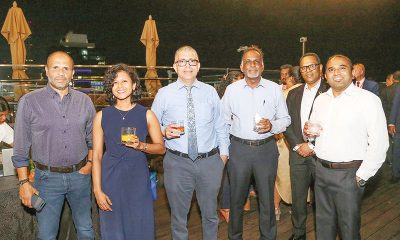
 Business4 days ago
Business4 days agoMembers’ Night of the Sri Lanka – Russia Business Council of The Ceylon Chamber of Commerce
-
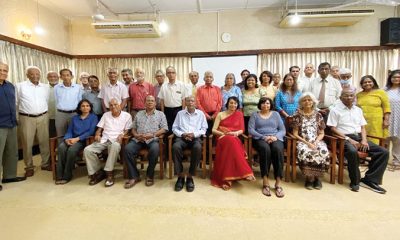
 Features4 days ago
Features4 days agoMinds and Memories picturing 65 years of Sri Lankan Politics and Society
-

 News5 days ago
News5 days agoLankan security forces Humanitarian Assistance and Relief Team working in Myanmar



